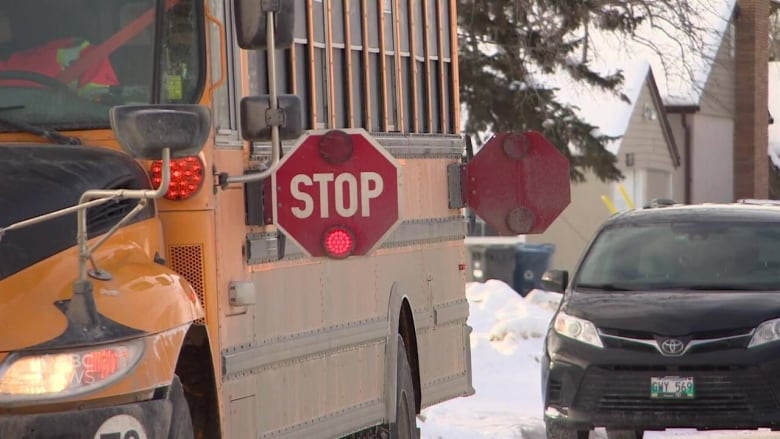
Thousands more Alberta students will need to qualify for school buses in the next two years, as the province changes its requirements.
The province has proposed increasing next year’s school transportation fund by 24 percent of this year’s expected spending, while requiring schools to offer buses to students who live closer to their buildings.
Education Minister Adriana LaGrange said school boards, parents, teachers and students said the current 2.4 kilometer mark was too far for children to walk – especially when they have to cross a motorway or busy street to get to class.
“Parents are concerned about safety, like all of us,” LaGrange said at a news conference in Calgary Thursday.
The proposed education budget allocates nearly $421 million for student transportation in the 2023-24 school year. Elementary school students who live more than one kilometer from a school are now eligible for school buses. Students in grades 7 to 12 who live more than two kilometers are also eligible for subsidized transportation.

The province also requires schools to provide buses for alternative programs, such as French immersion. For the first time, private schools will receive funding for transportation — 70 cents for every dollar per student that public schools receive.
Alberta Education estimates that around 47,000 students who already use the bus will find it cheaper. The school needs to recruit about 250 more bus drivers, officials said.
That can be tricky, as school bus drivers are scarce. The budget proposes to give schools more funds to help train new drivers.
NDP education critic Sarah Hoffman said the proposed increase neglected to fully address the rising costs of transferring students. He said funding was not keeping up with rising insurance, fuel and staff hiring costs, and schools may be forced to pass those costs on to parents at a higher rate.
New kindergarten homeschooling pilot
Details on how the Alberta school will be funded, distribution and how much, will be announced Thursday at government offices School funding manual 2023-24. It is based on a provincial budget that has not been approved by the legislature.
Next year, for the first time, the province will pilot funding for homeschooling parents and supervising schools that educate kindergarten students. It will cost $2 million.
Only students enrolled and supervised by public or private schools are eligible for kindergarten funding. School authorities will get $901 per student, half of which will be passed on to families for teaching materials, such as books, software or math tools.
Judy Arnall, president of the Alberta Homeschooling Association, said her organization has been asking the province to fund kindergartens for years.
“We are very pleased with this development,” he said Thursday. “It was a bit of a shock to us.”
The cost of supplies is often an obstacle for people who want to choose homeschooling, said Arnall. Although kindergarten is optional in Alberta, it is included in the curriculum, and the government should emphasize the importance of it, said Arnall.
A planned $42 million new fund to help with increasingly complex classrooms should go toward at least 80 percent of staff working with students, the government said.
If the budget passes, schools will also have access to $47 million next year for implementation of the new elementary school curriculum.
The proposed curriculum changes have been controversial. In response to resistance from educators, academics and parents, the province updated the proposed social studies and fine arts curricula.
New K-3 math and English language and health programs are mandatory in Alberta schools this year, and some schools are piloting new science, French and francophone programs.
In an interview, LaGrange said a new math and English program for grades 4 to 6 will also become mandatory next year.
Final curricula in science, fine arts, and French should be released in April. LaGrange says announcements about that, next steps for social studies, and when this new subject will become mandatory, are coming soon.
With Alberta’s school enrollment expected to rise 2.5 percent next year, and inflation driving up costs, the government has pledged to increase the value of some school grants. It comes after the province froze education funds for three years to control costs.
Hoffman said he didn’t expect the increase to keep up with the increases in school division fees over the last four years.
Funding enrollment growth is the bare minimum the government has to do when more students are enrolling, he said.
